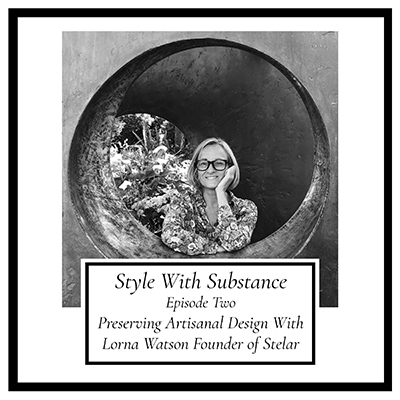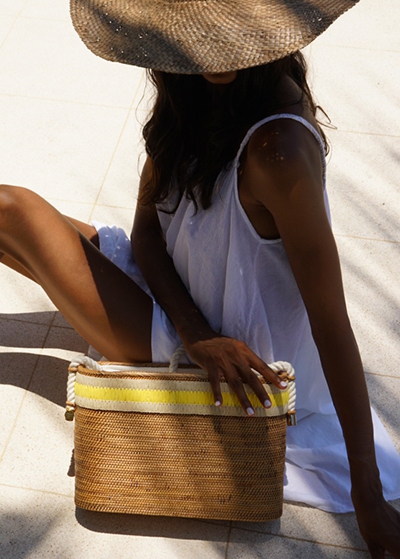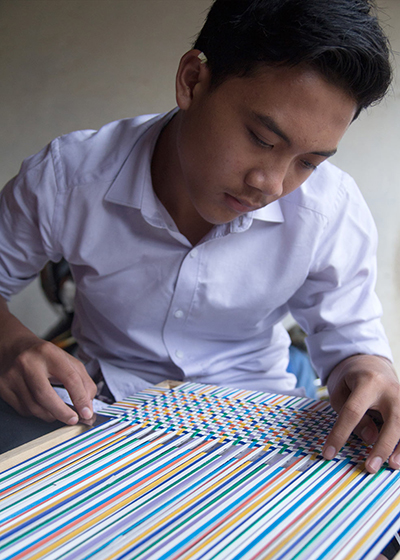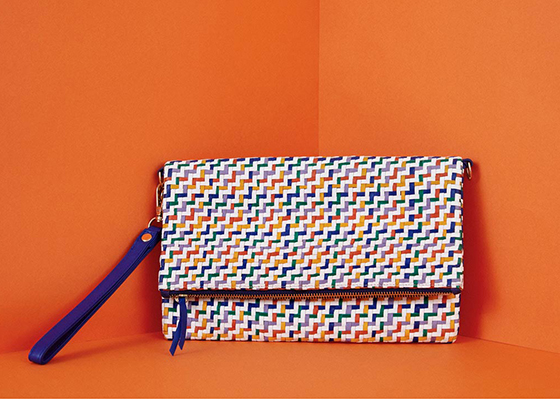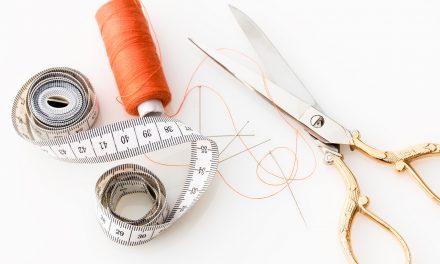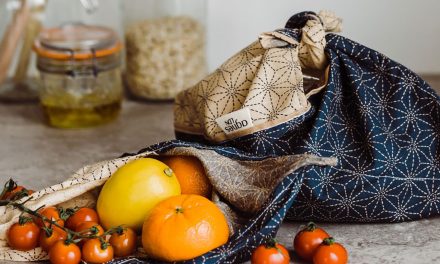Style With Substance – Episode Two Preserving Artisanal Design
Image: Stelar
In Episode Two of Style With Substance we explore the people behind our accessories. Lorna Watson of Stelar joins us to discuss the importance of preserving artisanal heritage.
Episode Two – Show Notes
Welcome back to episode two as we continue to discuss the Myths and greenwashing that surround Sustainable Fashion. This week we discuss the human element of Fashion and the importance of preserving artisanal heritage. A popular but untrue view of the fashion industry is that a lot of work, even complex, highly skilled work is done by machines. Or better yet, by highly skilled artisans that are paid well for their work. Unfortunately this is not always the case.
Introducing Our Guest
To delve a little deeper we are so excited to be joined by Lorna Watson, Founder of Stelar. Lorna started out in fashion as a Jewellery designer but a few years ago she decided to create something a little different. Stelar is an accessories brand, created exclusively in Bali by artisans. Lorna travels to East Bali frequently, forming lasting relationships with her suppliers and the people who create the accessories. Being given the space and safety to create, as well as a fair wage means that the vital skills that these artisans have learnt from elders and their community are not lost.So what is an artisan? Common Objective terms it as ‘independent craftspeople making products from start to finish, networks of artisans, vocational projects helping marginalized people, cooperatives and social enterprises operating with small-scale factory units or across whole communities.’
Paying A Fair Wage
Stelar began as a project to raise the perceived value of the skill of weaving. Balinese people weave every day; from their sleeping mats to prayer baskets. However because it’s such a common skill, the value of it was fairly low. More money can be earned driving a taxi. Lorna felt strongly that this weaving technique shouldn’t be allowed to die out. After spending time in Bali, she found a local leather supplier that is a by product of the meat industry and taught the weavers how to transfer their techniques from locally grown grasses like atta to leather. This has meant that the artisans can charge more for their work and Stelar worked hard with the community to set a fair wage. Not only that but also supporting the community with education initiatives and buying shoes and bags for the children to take to school. As well as training in subjects such as finance and marketing. All of the weavers can work from home in a flexible way that allows them to take care of family and children. It’s a complex subject that Lorna goes into during the podcast.Why Should We Support Artisans
From the outset, the brand was centered around the importance of the artisan within the manufacturing process. In a world where we have become accustomed to buying mass manufactured items, the maker is faceless to us. There is no connection between us and them. Let alone any knowledge of the conditions that the people who make our clothes and accessories work in. Lorna is passionate about transparency and authenticity and brining the story of the artisans to the forefront. Each bag has a small metal disc tag with a unique code. Type this code into the website and you can find out who made your bag. Lorna believes this allows the consumer to have a different, more meaningful relationship with their bag. It helps to create a personal and emotional connection with the things we own.We couldn’t leave the conversation there without sharing a few other accessories brands that support Artisans in a variety of different ways.
- Veja the sneaker company, popular with fashionistas, works with a network of rubber tappers in the Amazon Rainforest. Allowing them to collect the rubber for the soles of the trainers sustainably.
- Caplait are aUK based brand who produce shoes. They styles are modelled on the traditional Pakistani Chappel. They are designed in the UK and crafted in Peshawar by artisans.
- Greenpacha hats are handcrafted by communities in Ecuador using their native toquilla palm leaves.
- Pippa Small supports Turquoise Mountain an initiative which works with communities in Myanmar and Afghanistan. She designs collections in collaboration with the craftspeople, who then make the pieces, often in highly dangerous and stressful situations.
With thanks to our wonderful guest Lorna Watson, Founder of Stelar.
Sustainable Podcast Shout Out – Agnes Ldn

